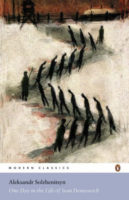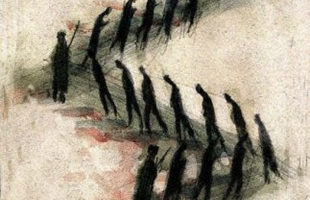L
Luke 12:13-34; the parable of the Rich Farmer and the teaching about not worrying about clothes and food has been on my mind and heart lately.
We could summarise this section as a teaching of Jesus against greed that culminates in behaviours of accumulation for the sake of a secure future. But there are connections in this passage that should drive us deeper into the text and into our own souls (a word that is used many times in this passage).
Old Testament Connections
Notice two moments of Jesus’ teaching that refer to Moses and Israel’s experience in the Exodus.
Firstly, when the younger brother interrupts Jesus and asks him to tell his older brother to divide the inheritance with him, Jesus comments, “Man, who appointed me a judge or an arbiter between you?”v14. This parallels words spoken to Moses when he tries to intervene in a dispute between two brother Israelites and he is rebuffed by these words; “The man said, ‘Who made you ruler and judge over us? Are you thinking of killing me as you killed the Egyptian?’” Exodus 2:14. Jesus rejects the role Moses was offering to assume for the contending Israelites.
Secondly, the teaching of Jesus is worrying about two very specific articles: food and clothing. This is a fairly limited set of things to not worry about. I tend to not worry about food and clothing very much at all and with regards to, ‘what I should wear’, Kath thinks I should worry about that a lot more than I do! I believe the list contains only these two items because we are meant to see a link to the Exodus.
Yet the Lord says, ‘During the forty years that I led you through the wilderness, your clothes did not wear out, nor did the sandals on your feet. You ate no bread and drank no wine or other fermented drink. I did this so that you might know that I am the Lord your God.’
Deuteronomy 29:5-6
Here is the reason of the limitation of subjects to worry about; Jesus is calling on them to understand that he is taking his followers on an Exodus journey that parallels Israel’s Journey from slavery to freedom; a journey where trust in your Father in heaven is essential, “’I did this so that you might know that I am the Lord your God.’” Deut. 29:6.
More Contemporary Connections

A number of years ago, I read Aleksander Solzhenitsyn’s A Day in the Life of Ivan Denisovich. It’s the Ivan’s story of a day in a Soviet Gulag. It was background reading for preaching through Exodus. I wanted to be able to understand the mindset of those experiencing oppressive slavery. Through, A Day in the Life, I was transported into a narrow and cramped world of the penny-pinching accountant whose transactions were not concerned with money but food, warmth and exhaustion, whose bottom line was the fine line between life and death. I realised that slavery in Egypt would have shaped the Israelites to be miserly, cautious, insecure and self-protective and controlling about the future. The LORD’s salvation, trusting in this promise-keeping God was an invitation to inhabit a bigger world. Not a world of lack but a world of plenty, not a world of insecurity but of absolute security. Through commandments and events, tabernacle and sacrifices, for forty years through Moses, the Lord taught a new Israel, a new culture, by providing clothes that didn’t wear out and food that came from heaven every day. His aim was to produce a people who could imagine the world differently because they knew their God and the God they knew was loving and generous and trustworthy.
Jesus’ Point
With that as our background, I think we begin to see more clearly into what Jesus was calling his followers to: The living out of a generous life based on the security found in the heavenly Father by not buying into the culture of ‘not enough’ but living out the culture that if God is our Father we can be generous with a little and a lot. Remember, the parable shows us a farmer who was wealthy already, was then blessed by God with an abundance of crop, still didn’t believe he had enough. Jesus is calling his disciples on an Exodus to a better place. They need to learn to live differently to live in the bigger world of the freedom and fulness of the Generous Father.
Today
We live in the age of insecurity and worry. Advertisers press our buttons about how insecure our futures are, that we live in a time of scarcity and volatility so, we must store up our super, we must insure our life to the hilt.
Jesus says we are secure, we are safe, the worse that can happen is someone takes our life but they can’t take our soul (Luke12:4), God has us in hand. When we trust him, we can be generous with what we have just like our heavenly Father who gave his Son.
When the first church came into being they understood this and lived it:
They devoted themselves to the apostles’ teaching and to fellowship, to the breaking of bread and to prayer. Everyone was filled with awe at the many wonders and signs performed by the apostles. All the believers were together and had everything in common. They sold property and possessions to give to anyone who had need. Every day they continued to meet together in the temple courts. They broke bread in their homes and ate together with glad and sincere hearts, praising God and enjoying the favour of all the people. And the Lord added to their number daily those who were being saved.
Acts 2:42-47
We know that not everyone sold everything they had but all used what they had in an open-handed way (Acts 12:12).
In an insecure world managed by media and advertising artificially stimulated so that we purchase and accumulate, followers of Jesus must march to the beat of a different drum. Jesus calls us to trust in the generosity of the Father as an antidote to the paralysing fear of slavery to insecurity and be generous with what we have, time, money and abilities. The world may consider us fools but Jesus won’t.

